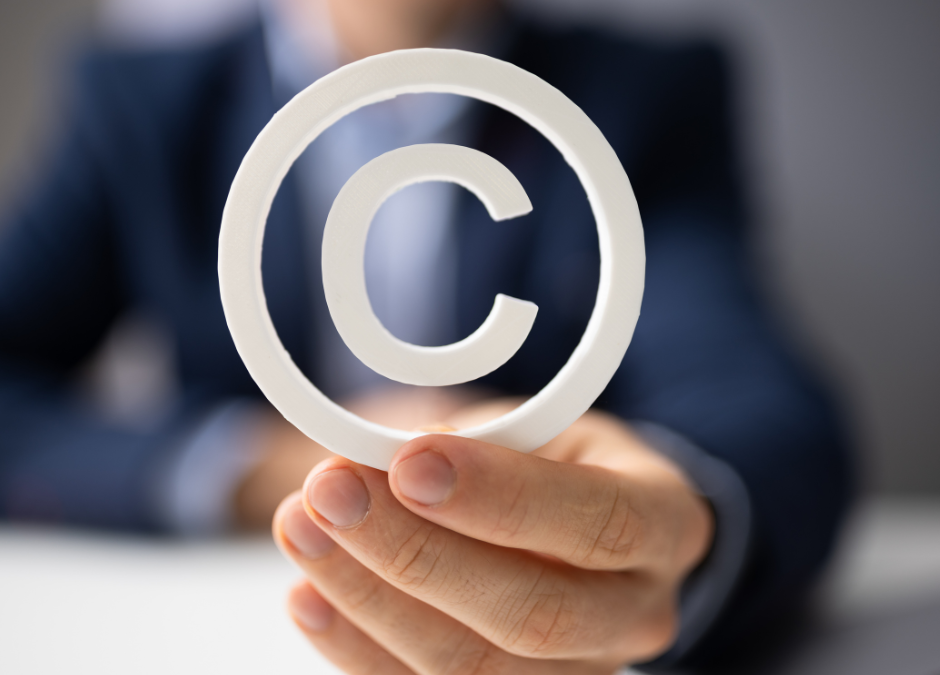The concept of a copyright is pretty straightforward: It grants certain parties the right to publish and, importantly, profit from certain materials.
Baked into this idea is the exclusion of others able to do so.
But with extant and expected regulations on artificial intelligence, business owners using generative AI may be in for a wild ride in 2024.
We go into just why this is below.
An Interesting Combination
We hinted at it above, but the existing law that we alluded to is a 2023 ruling on the copyrightability (is this even a word? Because it ought to be) of AI-generated content.
Basically, the ruling from a federal US court is as such: No, AI-generated content can not be copyrighted by humans who prompted its creation.
The other big thing that is happening is the requirement of watermarks for generative AI content.
What really got the ball rolling here is President Biden’s recent executive order outlining a number of possible regulations on the table for artificial intelligence in the United States. One of these possible regulations is the mandated disclosure of the use of AI in generating content.
Each of these on their own is considerable enough for a business owner to want to learn about. But in tandem, these regulations could have an interesting and potentially concerning effect on business’ creative marketing strategies.
We go deeper into each of these developments and their combination’s possible impact on business owners in the following sections.
The 2023 Copyright Law
Basically, the argument is that existing copyright laws only protect human-authored works.
Legislators declined to extend this to machines. The analogy they went with is that if a monkey made something and tried to sue, the court would toss the case out based on some allegedly ridiculous nature of such a lawsuit, which seems unfair to monkeys. (This is bad news for the team of infinite monkeys at typewriters that will eventually reproduce word-for-word the text of the first folio edition of Hamlet. Although that work may already be in the public domain.)
A human worker utilizing AI to generate, for example, marketing content ensures that anything produced from AI remains uncopyrighted.
So, if you guide ChatGPT in producing a book about SEO that you want to sell to people, be aware that one of your competitors could copy and paste the entire content into their own book and sell it.
But they must first know that AI created it, and Watermarks precisely achieve that.
AI Watermarks
Okay, we have been throwing the word “watermark” around without much explanation. What exactly are we talking about here?
Have you ever seen a piece of paper with a partly visible, faded logo on it? Typically, it is a business’ logo. That is a watermark that lets you know you are using a business’ stationery to write on.
An AI watermark functions differently, but the basic idea of a detectable mark on a piece of content is there.
Detectable does not necessarily mean visible to the human eye. In fact, an AI watermark could be invisible to the naked eye looking at, say, an AI-generated picture of a cool cookie surfing a wave of milk into the mouth of Santa Claus, both Santa and the cookie wearing sunglasses and lowering them to reveal winking eyes at the photo’s viewer.
Viewers can see this cool picture without any “GENERATED BY AI” markings on the content itself. Rather, the AI watermark would be detectable by, incidentally, AI, which could scan the image’s metadata that has the watermark in it.
If you are wondering just how the heck to add a watermark to an image’s metadata, or even what the heck an image’s metadata even is, there is no need to fret. It is expected that the onus of watermarking will be on the AI companies themselves.
This is for multiple reasons.
One, because only a slim minority of generative AI users would even know how to alter an image’s metadata in the first place.
Two, this ensures that the AI content will be automatically watermarked during its creation, so that all generative AI will be guaranteed to have a watermark.
Why a Protective Copyright Law Would Benefit Business Owners in a World with AI Watermarks
Copyright law is very reminiscent of its cousin, patent law.
Through patent law, the genius inventors of our world get to enjoy the fruits of their labor by securing, at least for a few years, the exclusive right to sell that invention in the marketplace.
Of course, there can be knockoffs, but nobody can knowingly replicate the secret formula to sell their own products.
With AI watermarks, the Internet will become a place where people could freely take business’ AI-generated content and incorporate it into their own content strategy.
This does not necessarily have to mean full-on plagiarism, but it could involve something mighty close to it in people taking “inspiration” from AI-generated images and writings online and freely using it in their own efforts.
This can make it harder for businesses to stand out.
But, of course, all this hinges on whether AI will actually be watermarked or not, which remains to be seen.


Recent Comments